
Onsite visit Murcia, Spain

Introduction
The first onsite project visit took place in Murcia, Spain from 31 May to 02 June 2023. It focused on the Overcoming Obstacles to Vaccination exemplary practice ‘School Vaccination Programme in Murcia Region’. This practice aims to improve vaccination against human papillomavirus (HPV) and meningitis targeting children 11 years of age.
The Murcian Health Service welcomed 27 participants from 15 different EU Member States to Murcia. Participants represented health ministries, health institutes and national immunisation offices. The goal of the visit was to:
- gain insights into the school vaccination programme and learn from its success
- foster mutual learning through peer exchanges
- develop ideas of how to transfer the practice to other Member States
During the three-day on-site visit, participants gained insights into Spain’s immunisation programme from the Ministry of Health, as well learning more about Murcia’s Monkey Pox vaccination strategy. Participants also observed nurses preparing for school vaccination and learned more about the administration of vaccinations in the home. Finally, they attended workshops to exchange ideas on how the practice can be implemented in other Member States.
During the visit, the Murcian Health Ministry was awarded a certificate of outstanding practice from the European Health and Digital Executive Agency (HaDEA).
School Vaccination Programme
Aim
Spain has high vaccination coverage rates (VCR), despite vaccinations not being mandatory. The HPV VCR is 91% for the whole country. In the case of meningococcal disease, achieving a higher VCR (>85%) for the dose given to children at age 11 is necessary to avoid the reappearance of cases of meningitis C and prevent cases due to other serogroups (A, W, Y).
Vaccination of infants and children is mostly carried out in a health centre or at a regular vaccination point as part of the Healthy Child/Adolescent Care Programme (Programa de Atención al Niño y Adolescente, PANA). In the first years of a child’s life, take-up of the medical check-ups included in the PANA is very high. Once children have reached the age of eleven, attendance at regular health check-ups drops to around 60%. The school vaccination programme in the Region of Murcia, Spain, aims at improving vaccination rates for HPV and meningitis.
Actors involved and implementation
To promote accessibility and equity, vaccination locations are transferred from health centres to schools. The school vaccination programme involves the Directorate General for Public Health and Addictions (Dirección General de Salud Pública y Adicciones, DGSPyA), the Murcian Health Service (Servicio Murciano de Salud, SMS), Murcian Education Ministry, and school principals and teachers. The parents of children due for vaccination are also involved in the process, receiving an information letter and a consent form to be completed and returned to the school. An information pack including the consent form is available in several languages, including Arabic for the Arabic-speaking community of Murcia.
The Murcian Health Service and DGSPyA organise school vaccinations. Nurses from primary healthcare centres are in contact with the schools and prepare the school vaccination against HPV and meningitis. Parents give their written consent if they want their child to be vaccinated. The school administration and teachers support the project by collecting the consent forms.
On the day of vaccination, the nurses set up a vaccination room in the school. Teachers bring the children from their class to receive the vaccination and monitor their reactions to the vaccine for 30 minutes post-vaccination. Nurses subsequently register the vaccination in the digital registry and inform parents/guardians if for any reason the child was not vaccinated (e.g., due to illness). Vaccination teams reach out to the parents and guardians of children who are registered as unvaccinated in the vaccination database for their age group. Those living in the healthcare centre district can be approached directly via telephone, letter, or e-mail. Parents of unvaccinated children living beyond the healthcare centre’s remit are contacted by the regional Vaccination Programme.
Resources
The ‘School Vaccination Programme in Murcia Region’ is supported by regional funding.
Along with the help of nurses and teachers, the programme requires spatial resources, including vaccination and post-vaccination monitoring rooms. The vaccination team consists of two nurses who are provided with medical equipment which includes stethoscope, sphygmomanometer, blood glucose monitor, airway equipment including ventilation bags and Guedel airways, IV-line material, and medication.
Results
By bringing vaccination directly into schools, the practice removes barriers for parents struggling with booking systems or health centre opening hours. It provides easy access and clear information on vaccination opportunities.
The VCR for third doses of the vaccine against meningococcus serogroup C reached between 91% and 93% in the cohort born in 2004-2005 (vaccinated in schools), with the latest VCR against meningococcus ACWY reaching around 90%. For HPV, coverage with two doses in 2020 and 2021 ranges between 85% and 95%, whereas the VCR achieved in the 1994-born cohort (vaccinated at health centres) was only 62.3%. With school vaccination, cases of meningococcal disease have dropped from 29 cases of meningococcal disease C in 1996 to two cases in the 2020-2021 season. There was also a decrease in cases of meningococcal disease in the other serogroups included in the quadrivalent vaccine.
Outcome of the visit
During the onsite visit workshop sessions, participants identified several strengths of the Murcian School Vaccination Programme. These include:
- Effective collaboration between the Ministry of Health, the Ministry of Education, and schools. Ministries, which work together, set common goals, and provide the necessary resources throughout the implementation of the programme.
- Involvement of nurses whose expertise and on-site presence in schools ensure the effectiveness of the vaccination process.
- The active role of National Immunisation Technical Advisory Groups (NITAGs) in providing guidance and expertise.
Participants identified several ways in which to increase the efficiency of the programme, including digitalisation of the medical history and vaccination record, which could reduce the reliance on paperwork observed. A digital system could save time and resources for medical staff. One potential challenge raised concerned privacy, data protection and record keeping, due to the absence of formal procedures as a result of using paper-based consent forms. Participants therefore suggested creating a General Data Protection Regulation (GDPR) compliant digital vaccination register.
Several Member States pointed out that shortages of trained and qualified healthcare workers could be an additional challenge if the programme were transferred to another national context. A key aspect when transferring the programme relates to building trust. As the programme targets parents of young children, trust in both the medical professionals administering the vaccines and the political system supporting the programme is essential.
Attendees welcomed the opportunity to exchange knowledge with professionals from other countries as well as gaining new perspectives on medical practices (e.g., learning about the legal regulations regarding who is allowed to administer vaccinations).
Find out more about the Murcia School Vaccination Programme:
Websites:
- www.murciasalud.es/web/vacunacion/-/vacunacionescolar_meningococovph
- www.murciasalud.es/en/web/vacunacion/
- www.murciasalud.es/en/web/vacunacion/vacunacionescolar
Social media channels:
- Twitter: @Murciasalud
- Facebook: @Murciasalud
-
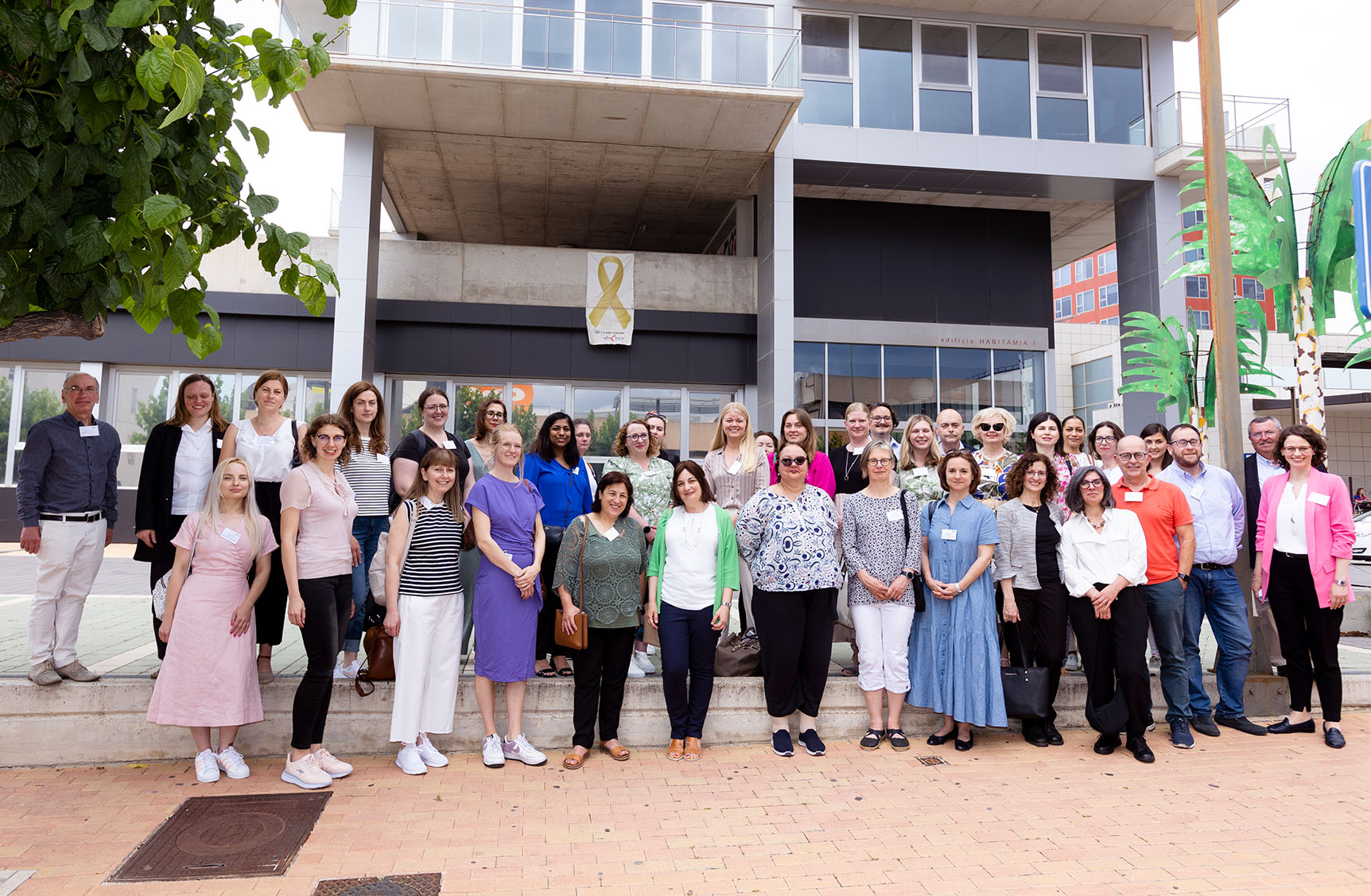
Group photo in Murcia, Spain during the onsite visit -
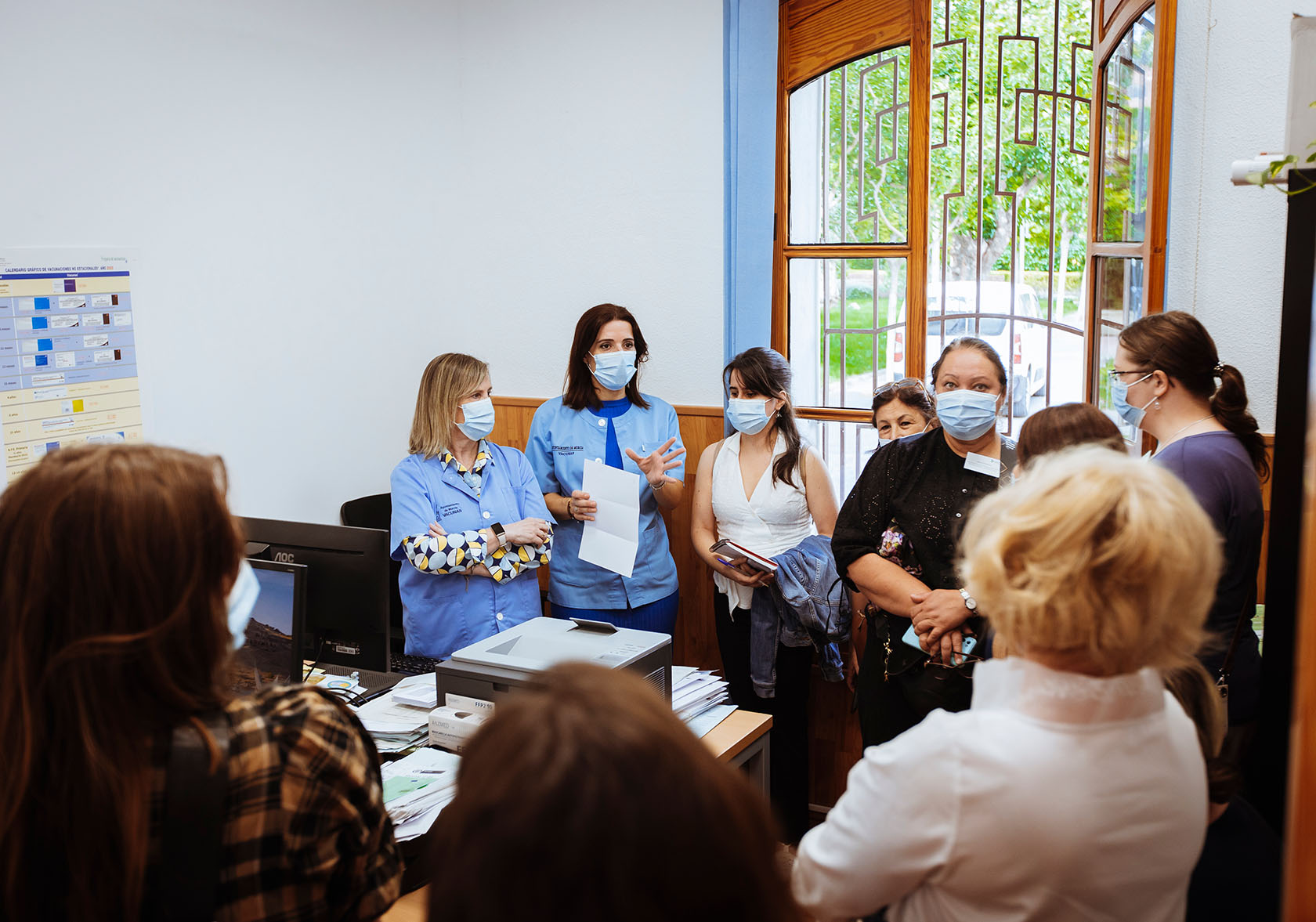
Onsite visit participants on a tour of a vaccination centre -
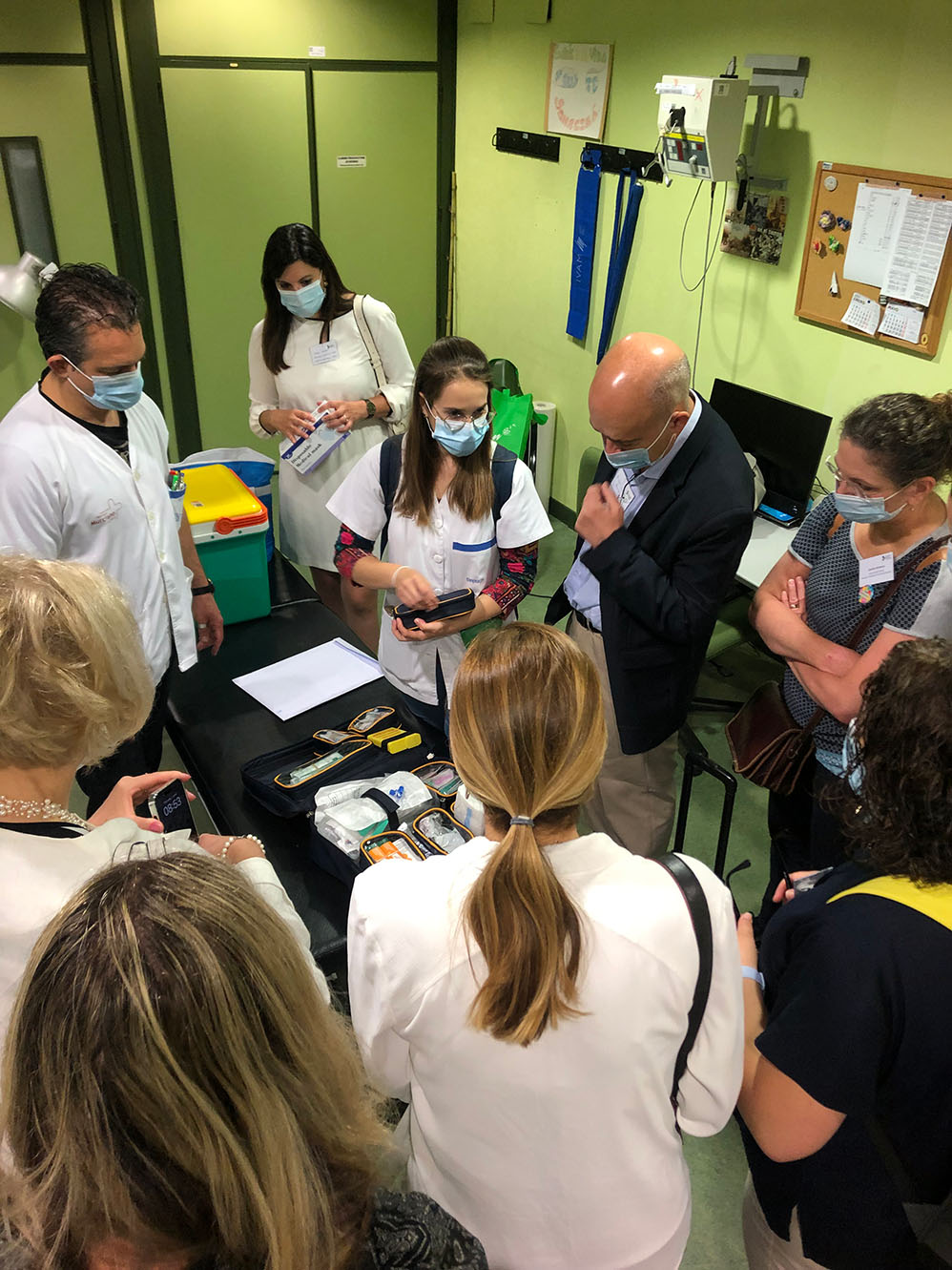
Nurse opening medical equipment -
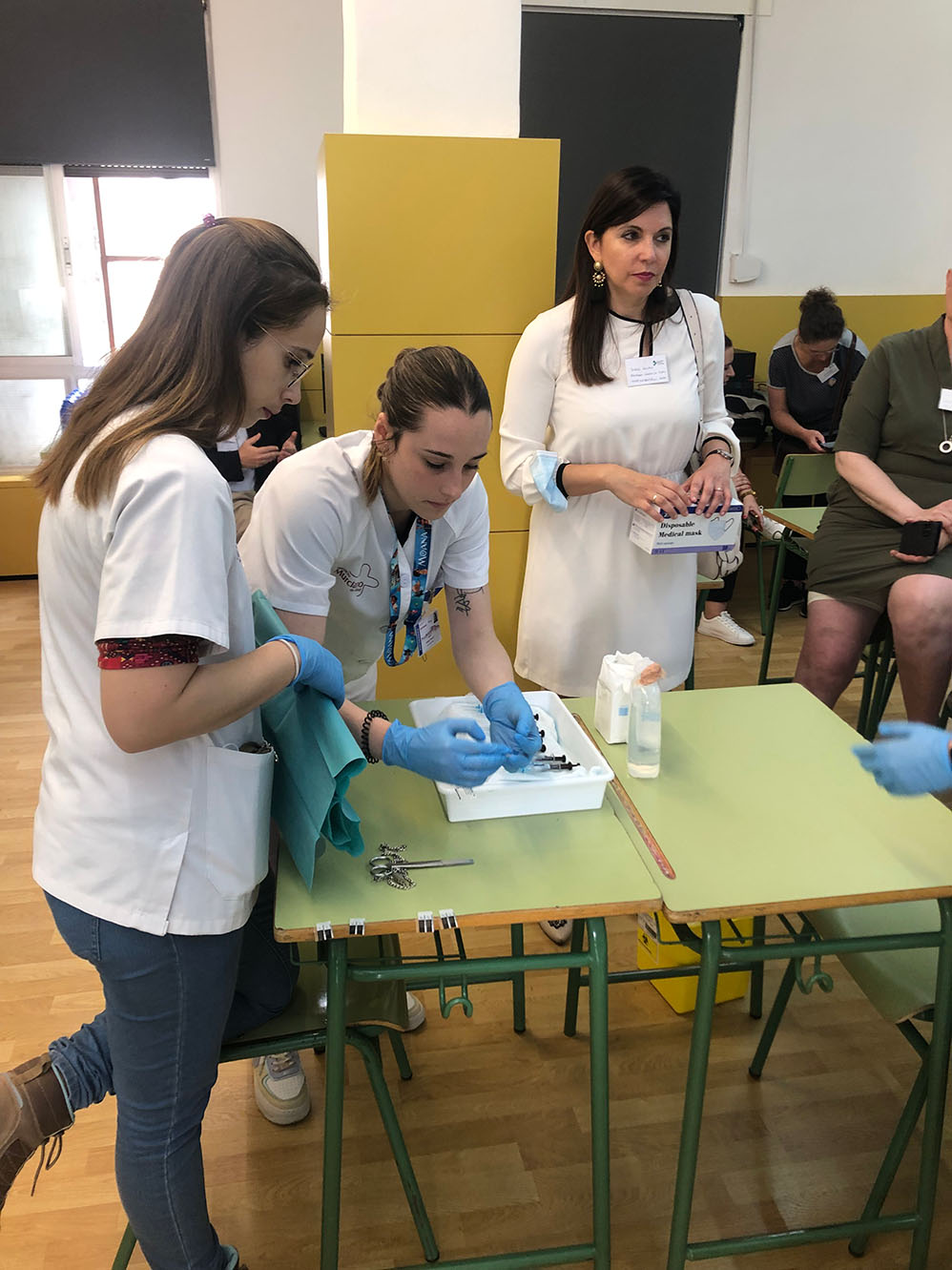
Nurses preparing vaccine injections -
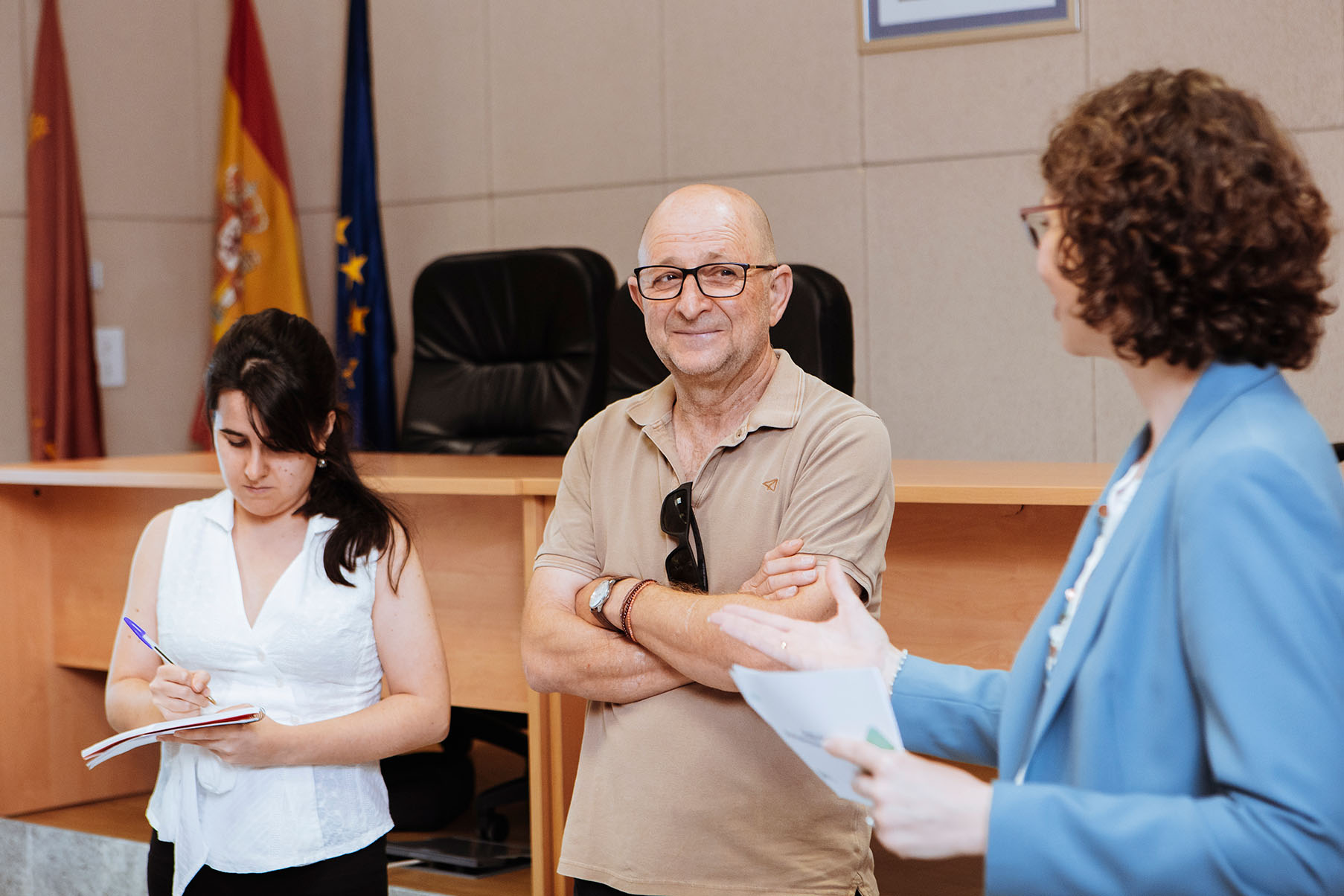
Presenters talking to each other in-between plenary sessions of the onsite visit in Murcia, Spain -
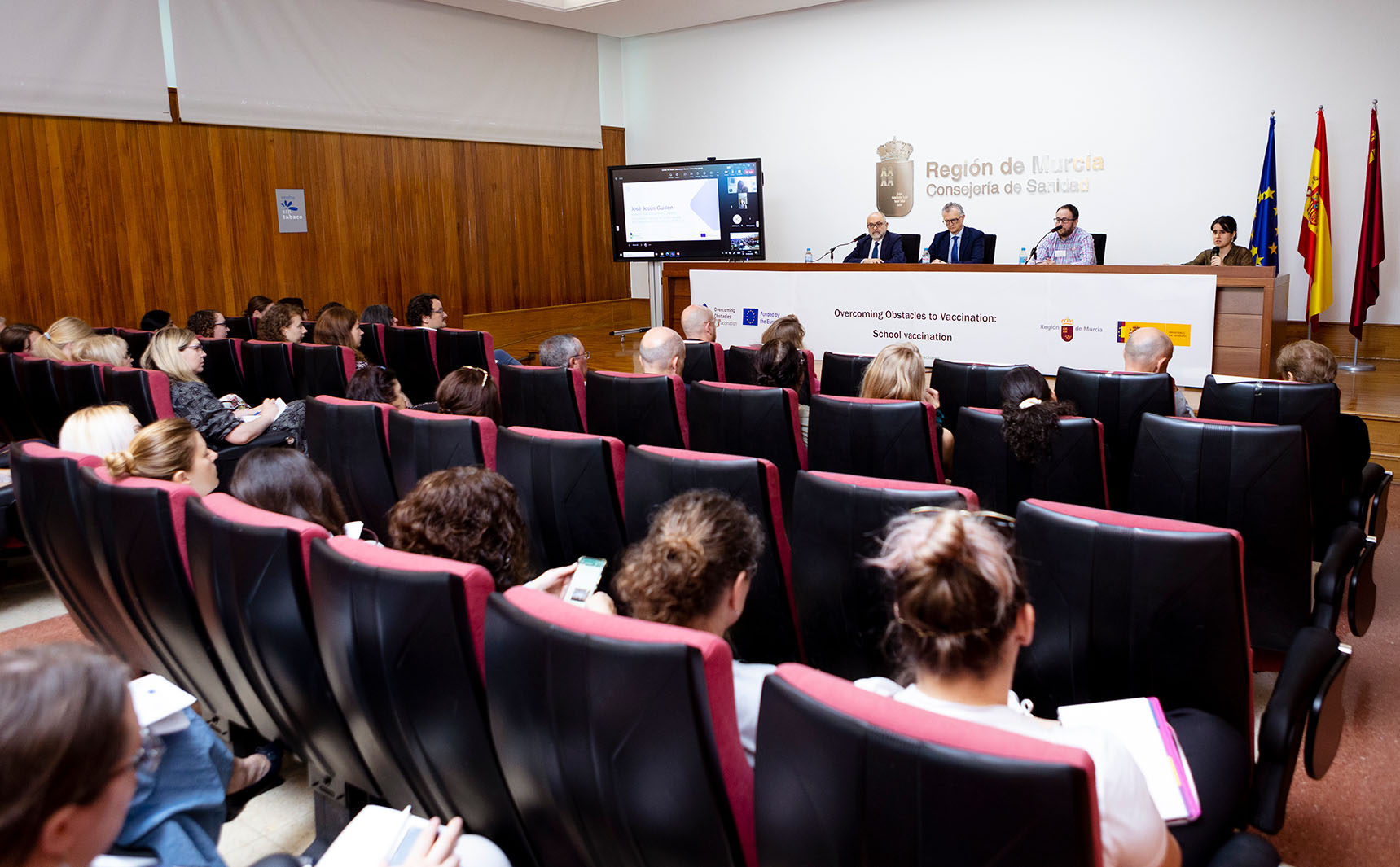
-
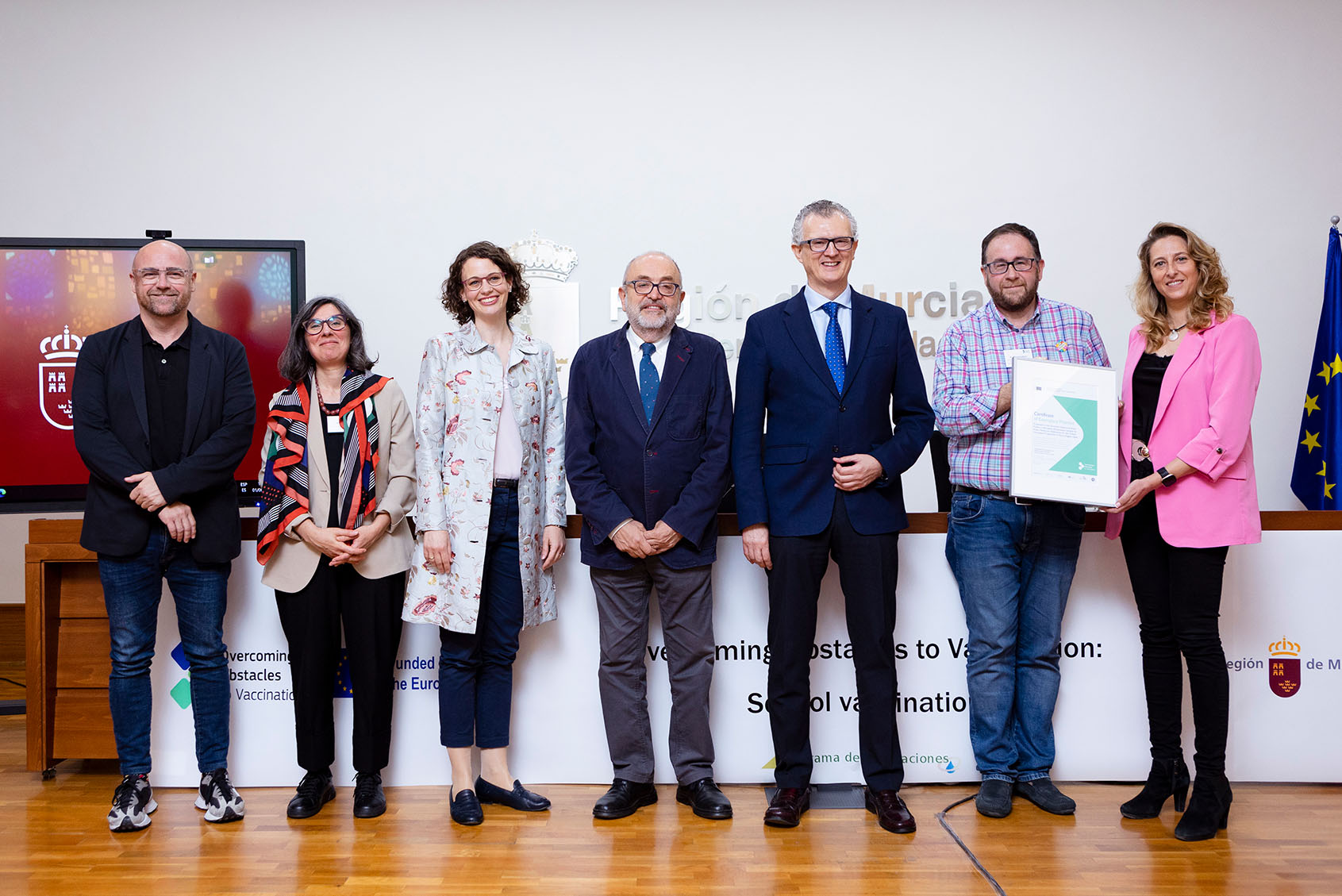
Photo of award ceremony showing from left to right: Francisco José Ponce Lorenzo; Emanuela Carta, Director, Kantar Public; Julia Wirth, Project Manager, ifok GmbH; José Jesús Guillén, Director General of Public Health, Directorate General for Public Health and Addictions of the Region of Murcia; Dr. Juan José Pedreño, Minister of Health of the Region of Murcia; Jaime Pérez Martín, General Deputy Director of Prevention, Health Promotion and Addictions, Directorate General for Public Health and Addictions of the Region of Murcia; María del Carmen Balsas Ramón, Director General for Human Resources, Educational Planning and Evaluation, Ministry of Education of the Region of Murcia. -
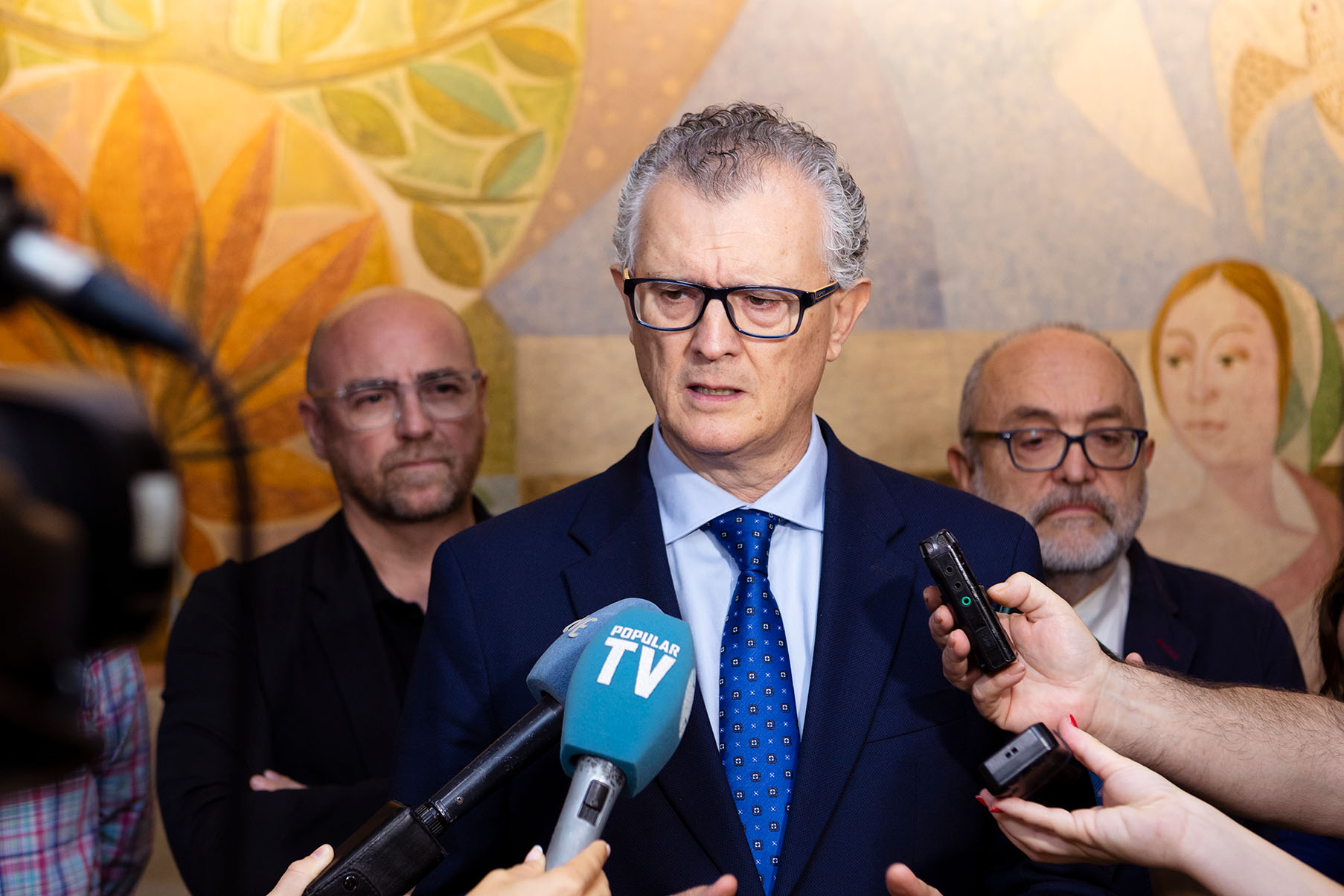
Dr. Juan José Pedreño, Minister of Health of the Region of Murcia during interviews as part of the onsite visit in Murcia -
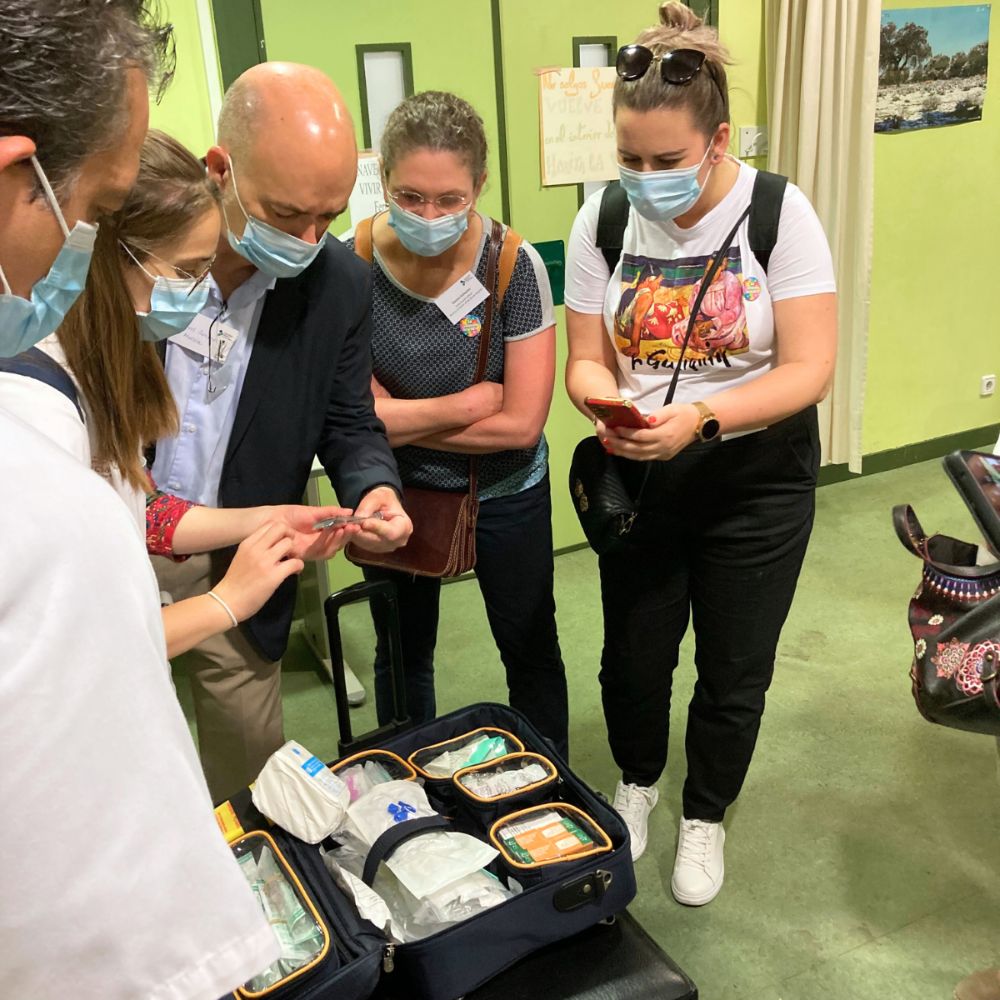
Participants reviewing the medical packs during the onsite visit at a vaccination centre -
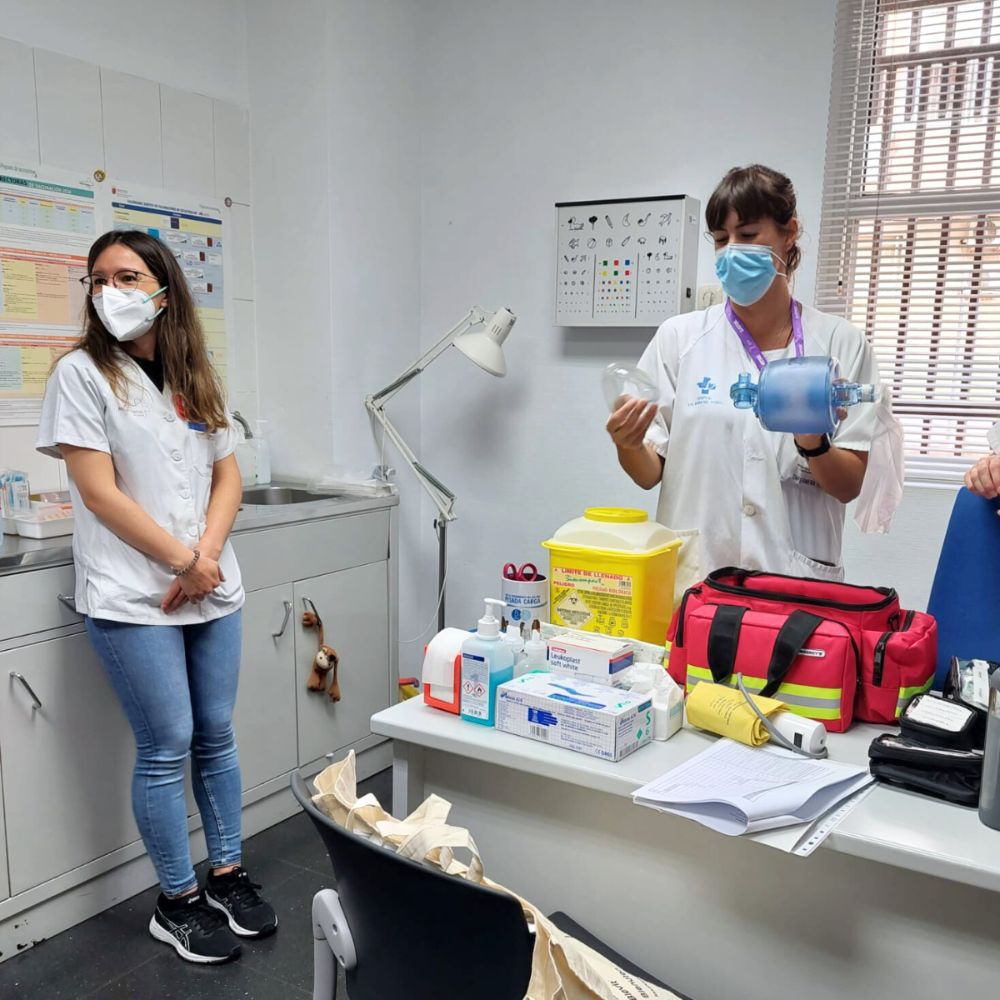
Nurses outlining the medical equipment available
